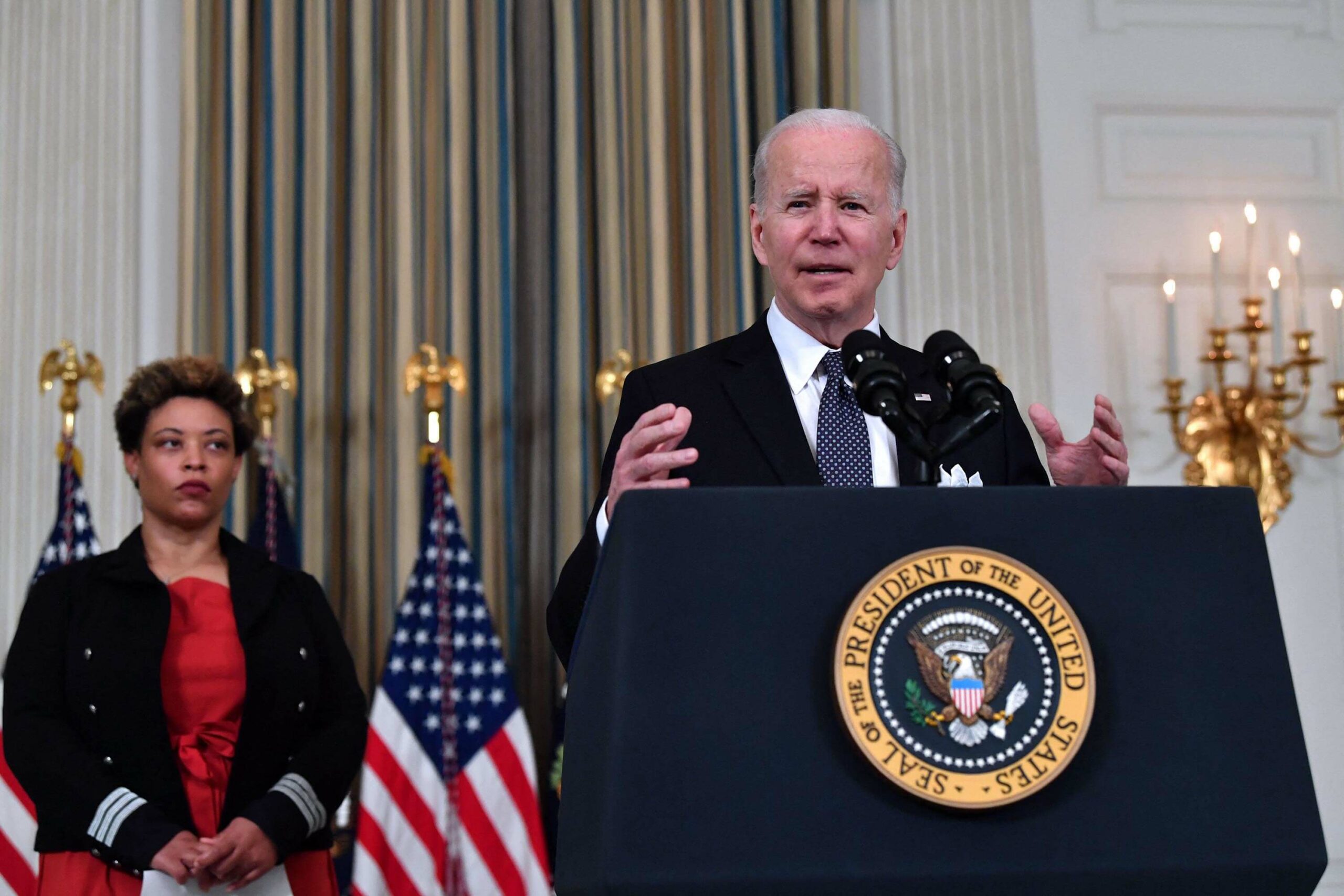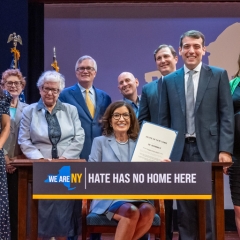Here’s what’s in Biden’s $5.8 trillion budget proposal
Washington DC: The multi-trillion-dollar budget proposal released Monday seeks to build on the achievements of President Joe Biden’s first year, including the passage of the new infrastructure law while chipping away at long-term priorities such as climate change and competition with China.
Here’s a high-level look at what Biden’s proposal includes, and why that matters — especially as the midterm elections approach:
A modest defense boost
The White House asked Congress for $813 billion for national defense on Monday — including $773 billion for the Pentagon or $30 billion more than approved by Congress for this year. The administration is focusing on China as the “pacing challenge” for the Pentagon, its budget documents released in the morning say. The national defense budget enacted for this year was $782 billion. Overseas, the request includes $6.9 billion for the European Deterrence Initiative — up from a $3.6 billion request in 2022 — and $1.8 billion for expanding U.S. military presence in the Indo-Pacific region.
Another shot at taxing the uber-rich
Biden’s plan would require the top 0.1 percent of earners, those worth more than $100 million, to pay at least 20 percent in taxes on a combination of their income and their unrealized gains in assets like their stock portfolios. Those gains are not currently taxed. The administration estimates the plan would raise $360 billion over the next decade.
A ‘historic’ bump for antitrust enforcement
Biden has asked for a total of more than $200 million extra for the federal government’s two antitrust agencies, which are coping with a crush of corporate mergers while waging legal battles against the nation’s wealthiest tech giants. Biden’s proposed budget includes $287 million for the Justice Department’s Antitrust Division, a 49 percent increase from what Congress has enacted for the fiscal current year, and $491 million for the Federal Trade Commission, up 30 percent. The White House described both as “historic increases.”
A reined-in commitment to climate change
Biden’s hugest climate ambitions have died in the Senate, but he’s still using this budget proposal to try to advance the cause — including $18 billion to help the country withstand the worsening wildfires, floods, and storms fueled by rising temperatures. The proposal would also devote $11 billion to help other nations transition to cleaner energy— nearly four times the amount that was pledged under the Obama administration.
Looking ahead to the next pandemic
The Biden administration has asked for a roughly 15 percent increase for the Department of Health and Human Services, requesting a $127 billion sum that includes major increases for pandemic preparedness and public health surveillance. Biden is requesting $81.7 billion over five years to bolster pandemic preparedness and biodefense which includes $12.1 billion for the National Institutes of Health to research and develop vaccines, tests, and treatments for biological threats.
Building on the infrastructure law
Biden is pushing forward with the Democrats’ biggest accomplishment so far — the big infrastructure law, enacted last fall, that included $550 billion in new money for roads, bridges, railways, and more. The budget proposals also reflect a commitment to transit, with $21 billion going to the Federal Transit Administration, the bulk of which will be disbursed as grants for bus and transit system projects.
Campus-based aid programs
Biden has asked for $880 million in funding for the Federal Supplemental Educational Opportunity Grant program. The program provides funding to help low-income students attend college, and the proposal asks for a lower allotment. The current funding is $895 million.
(Courtesy: Politico)











